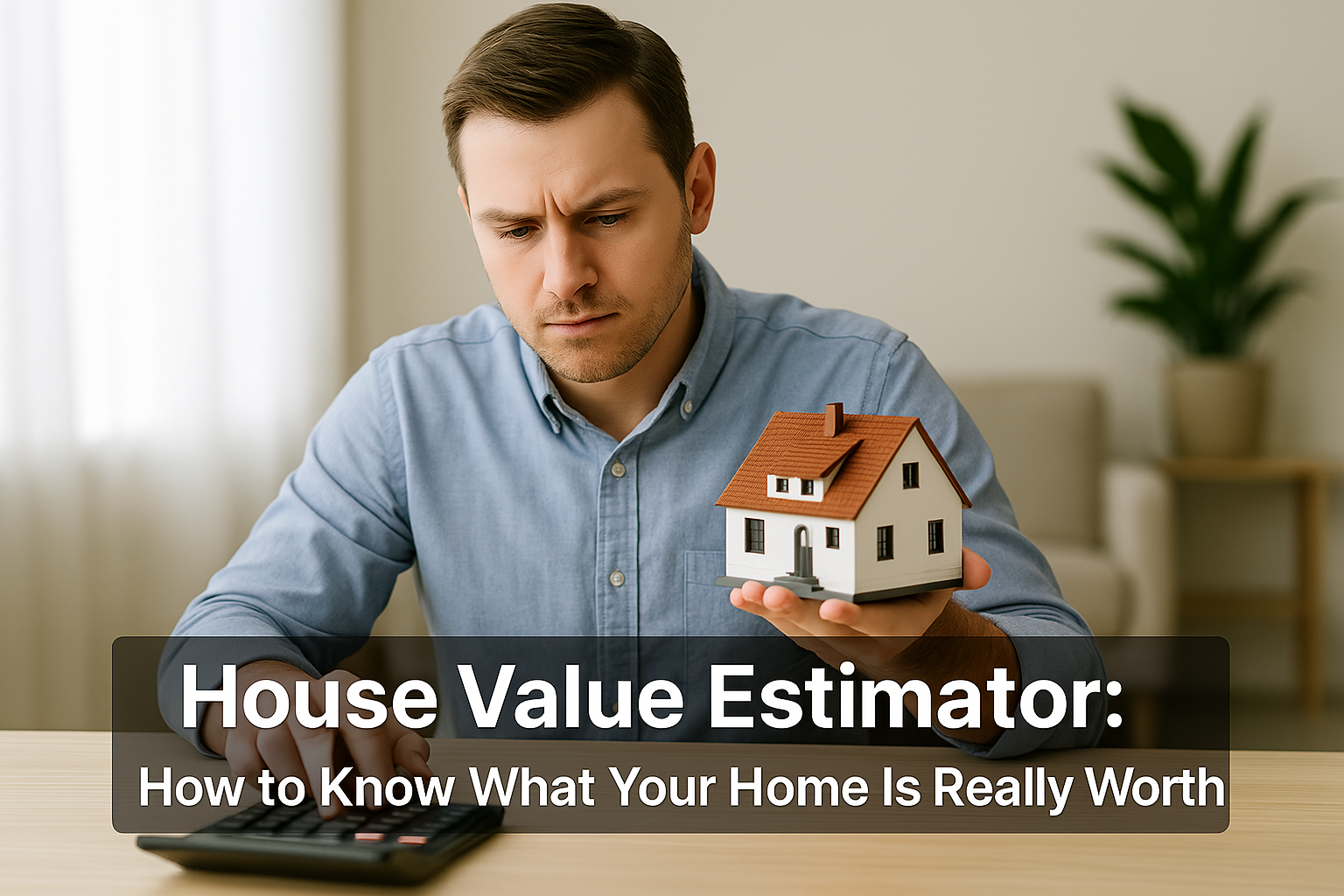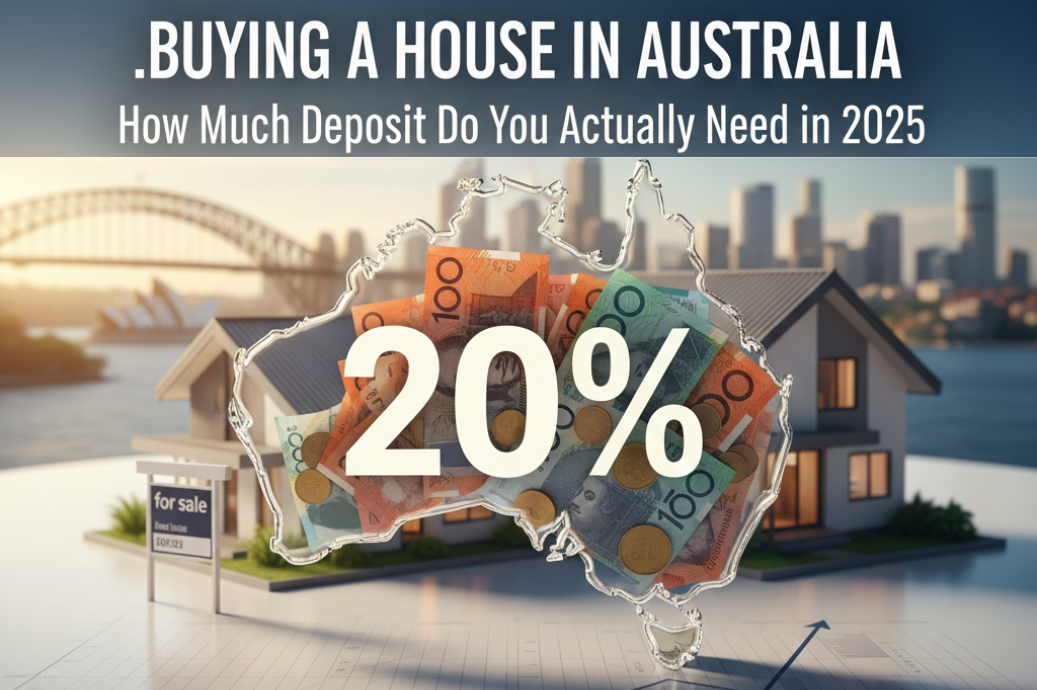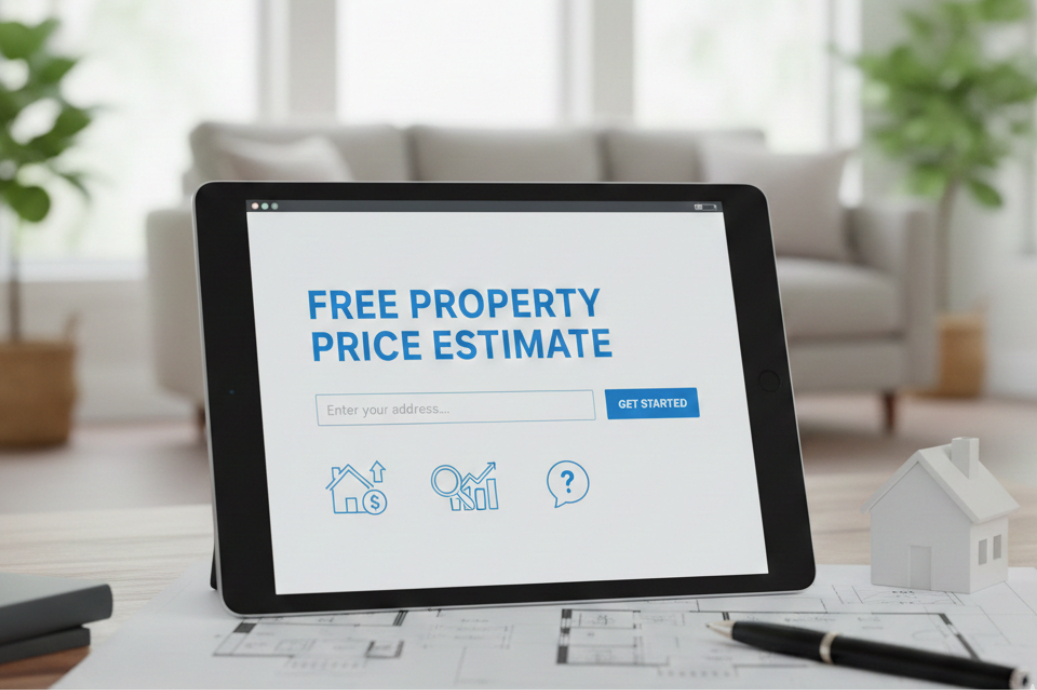As a homeowner, understanding your property’s true market value is one of the most crucial decisions you’ll make. Whether you’re considering selling a house or property, refinancing, or simply curious about your investment’s performance, getting an accurate house value estimator reading can save you thousands of dollars and months of frustration.
At Wright Way Realty, we’ve helped countless homeowners navigate this complex process, and we’re here to share our expertise with you.
Why Accurate House Value Matters More Than Ever
The Australian property market has experienced significant fluctuations in recent years, making it essential to have a realistic understanding of your house value. Many homeowners fall into the trap of overestimating their property’s worth based on emotional attachment or outdated information. This disconnect between perceived value and market reality can lead to costly mistakes when it’s time to sell.
A reliable house value estimator takes emotion out of the equation and provides data-driven insights based on current market conditions. This objective approach helps you make informed decisions about pricing, timing, and marketing strategies that can significantly impact your final sale price.
Understanding Market Value vs Personal Value
Before diving into valuation methods, it’s important to distinguish between market value and personal value. The house value of my house might feel enormous to me because of memories created there, renovations I’ve completed, or the premium I paid during a competitive market phase. However, the market doesn’t factor in these emotional elements.
Market value represents what informed buyers are willing to pay and informed sellers are willing to accept under current market conditions. This figure is determined by comparable sales, current demand, interest rates, and broader economic factors that influence buyer behaviour.
Professional House Value Estimator Methods
Comparative Market Analysis (CMA)
The primary method for assessing house value involves comparing your property to recently sold homes with similar characteristics in your area. Real estate professionals use this method to provide accurate house value estimates by comparing:
- Property size and layout
- Land dimensions
- Age and condition of the home
- Location and street appeal
- Recent renovations or improvements
- Current market trends
Professional Appraisals
For the most precise house value estimate, consider hiring a licensed property valuer. These professionals use standardised methodologies and have access to comprehensive market data that may not be publicly available. While this service comes with a cost, it provides the most defensible valuation for legal, insurance, or financial purposes.
Online House Value Calculator Tools
Digital house value calculator platforms have become increasingly sophisticated, offering convenient preliminary estimates. These tools analyse publicly available data, including recent sales, property characteristics, and market trends, to generate automated valuations. While useful for initial research, online calculators should be viewed as starting points rather than definitive answers.
Factors That Influence Your House Value Estimate
Location and Neighbourhood Characteristics
Location remains the primary driver of property values. Factors that positively answer your question on how much is the value of my house, include:
- Proximity to quality schools and universities
- Access to public transportation
- Distance from employment centres
- Neighbourhood safety and crime statistics
- Local amenities such as parks, retail centres, and recreational venues
- Future development plans that could enhance or detract from the area
Property-Specific Features
The physical characteristics of your home significantly influence its market value:
- Size and Layout: Total floor area, number of bedrooms and bathrooms, and functional design all impact value
- Condition: Well-maintained homes command premium prices, while properties requiring significant repairs may sell at discounts
- Age and Style: Newer homes often have higher values, but well-preserved period properties can also attract premium prices
- Outdoor Space: Garden size, landscaping, and outdoor entertainment areas add considerable value
- Parking: Garage spaces, carports, or secure parking significantly impact urban property values
Market Conditions
Broader market factors affect all properties in an area:
- Supply and Demand: High demand with limited supply drives prices up, while oversupply can depress values
- Interest Rates: Lower rates typically increase buyer purchasing power and drive up property values
- Economic Conditions: Employment rates, wage growth, and consumer confidence all influence buyer behaviour
- Seasonal Variations: Property markets often experience seasonal fluctuations that affect timing and pricing strategies
Key Considerations When You’re Ready to Sell
How to Sell a House Strategically
Once you’ve established your property’s market value, the next consideration is how to sell a house effectively. Successful sales require careful planning, strategic pricing, and professional marketing. Working with experienced real estate agents who understand local market conditions can make a significant difference in both sale price and timeframe.
How Much It Cost to Sell a House
Understanding selling costs is crucial for financial planning. Typical expenses include:
- Real estate agent commissions (typically 2-3% of sale price)
- Marketing and advertising costs
- Legal fees for conveyancing
- Styling or minor renovation costs
- Potential capital gains tax implications
These costs can total 4-6% of your property’s value, which should be factored into your net return calculations.
How Long Can It Take to Sell a House
Market conditions, pricing strategy, and property characteristics all influence sale timeframes. In balanced markets, most properties sell within 30-60 days of listing. However, overpriced properties or those in challenging locations may take significantly longer.
Properties priced accurately from the outset typically sell faster and often achieve better final prices than those that start high and require price reductions.
Preparing Your Home for Valuation
Enhance Curb Appeal
First impressions significantly impact house value estimates. Simple improvements such as fresh paint, garden maintenance, and ensuring the property presents well can influence both professional valuations and buyer perceptions.
Document Improvements
Maintain records of renovations, improvements, and maintenance work. These details help valuers and agents understand value-adding elements that may not be immediately apparent.
Research Recent Sales
Before meeting with professionals, conduct your own research on recent sales in your area. This preparation helps you ask informed questions and better understand the rationale behind valuation figures.
Common Valuation Mistakes to Avoid
Overreliance on Online Tools
While house value calculator tools provide useful starting points, they cannot account for property-specific features, condition, or unique characteristics that significantly impact value.
Ignoring Market Timing
Property values fluctuate with market conditions. A house value estimate from six months ago may not reflect current market realities, particularly in volatile market periods.
Emotional Pricing
Allowing personal attachment to influence pricing decisions often leads to overpricing and extended selling periods. Successful sellers maintain objectivity throughout the process.
Working with Wright Way Realty
At Wright Way Realty, we combine local market expertise with sophisticated valuation tools to provide accurate house value estimates for our clients. Our team understands the nuances of Australian local markets and can help you understand what your home is truly worth in today’s market.
Whether you’re planning to sell, curious about your equity, or simply want to know the house value of your property, contact us today for a professional and insightful appraisal.






